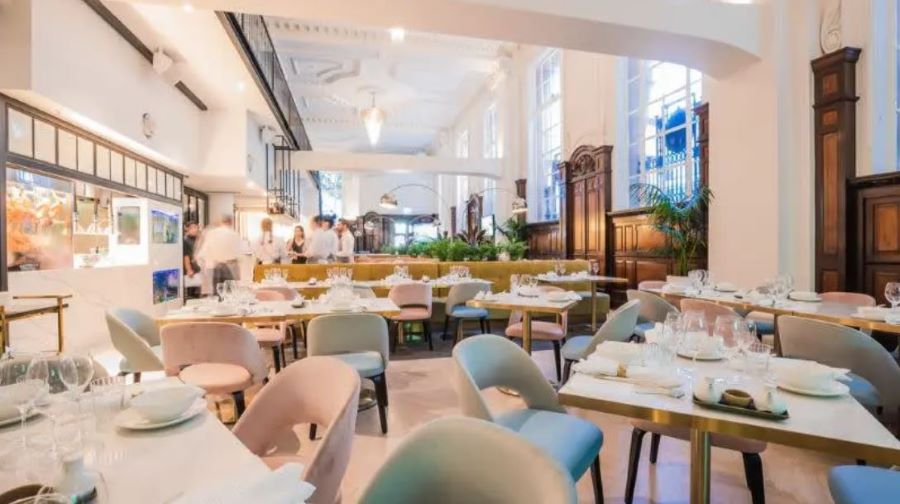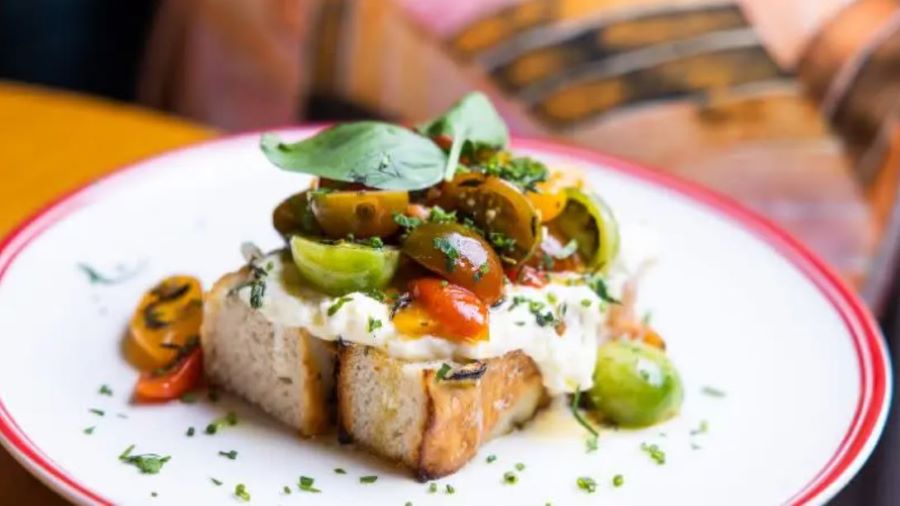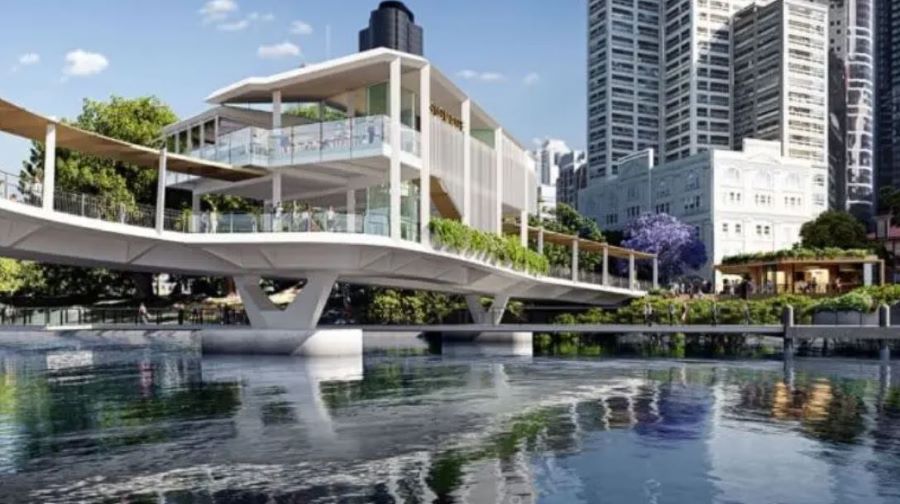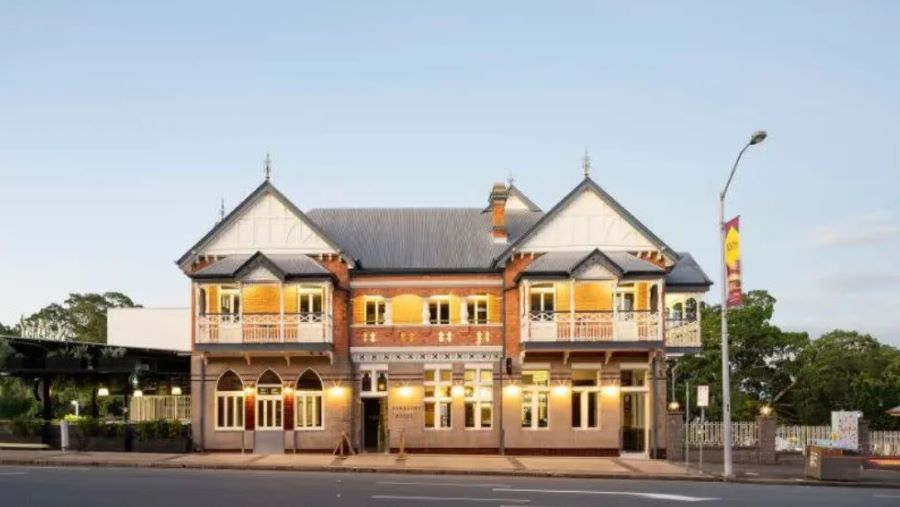Investors are circling Brisbane hospitality assets as the city finally shakes off its “big country town” label ahead of the 2032 Olympics.
Queensland’s capital has already experienced a wave of development focused around hospitality, including the $3.6-billion Queen’s Wharf, the $9-million renovation of the Fortitude Valley GPO and, announced last week, the redevelopment of Mt Coot-tha by Mantle Group.
Hotels and retail are experiencing seismic shifts, Brisbane’s restaurant scene is looking strong and with an expected $4.6-billion windfall for tourism and trade from the Games, this is only going to get stronger.
Nehme Ghanem is one of the managing directors of Ghanem Group, owners of luxury CBD restaurants including Donna Chang. He says that the opportunity provided by the Olympics cannot be missed.
“Leading up to the Olympics, billions of dollars are expected to be spent on infrastructure and development in Brisbane,” Ghanem says.
“New development and upgrades to existing precincts will create a number of F&B opportunities.
“Landlords will be interested in reaching out to national and international operators and there will be many operators interested in being part of Brisbane’s ‘World City’ development journey.”

Alemré Group, owner of Olé on South Bank, Mecho Mexicano, Vici Italian and Downtown Istanbul, has been a part of the Brisbane hospitality scene for more than 12 years.
Alemré general manager Brandon Orr says Brisbane’s population growth during the past 12 to 24 months has laid the groundwork for massive growth in hospitality in the lead-up to 2032.
“With the population explosion of the past few years, we’ve been able to expand on what we’ve already been building. The Brisbane food scene has improved greatly during the past few years,” he says.
“We’ve seen a massive increase in the number of venues opening, offerings are getting even better and there are different styles and precincts popping up.
“We are working towards that once-in-a generation event where you host an Olympic Games event—people are buying into that now and it will come upon us quick.”

However, in the short term, the picture is a little bleaker, according to Nehme Ghanem.
“I see a consolidation period happening, people are tightening their belts and are not spending as much,” Ghanem says.
“I guess with interest rate hikes and high inflation, there seems to be a ‘wait and see’ feel to the industry.”
But change is coming, and Ghanem pins it on some major developments currently under way.
“From 2024 and the opening of Queen’s Wharf, I believe we will enter a new era for the hospitality industry,” he says.
“It’s a huge development and there are some world-class venues opening. As a destination, Brisbane will open up to a whole new market of visitors and it’s a great opportunity to showcase our fantastic hospitality scene.
“What’s more, it will force other precincts and venues to invest in their offering to stay competitive and attractive in the market.”
High end hospitality and hotels
Increasing competition is forcing operators and investors to up their game and carefully consider not only their offering but their location.
“Entrants into the industry are a big mix from interstate, people from Sydney or Melbourne, who have had a hard time in their backyard and are starting up in an expanding food scene,” says Orr.
“But there are also chefs coming up from local restaurants like Stoke House and creating their own identities as chefs to then branch out into venues of their own.”
Operators are also upping their game with add-ons and high-end fare, such as Mantle Group including a gin distillery and edible native garden in its Mt Coot-tha development.
Meanwhile, the operators of the Point Green Bridge restaurant tender Tassis Group put forward a seafood and steak restaurant for the one-off site.

Interest in hotels and pubs in Brisbane is also growing, potentially at the expense of Sydney and Melbourne, according to CBRE Hotels national director Paul Fraser.
“There are two main forces at play,” he says. “There’s the fact that the Sydney market has been so hot for so long and cap rates, specifically for pubs, have been so tight, that it has had that natural push for publicans to start seeing out better yields geographically,” he says.
‘They first started moving into regional NSW, for instance. There have been lots of larger transactions and records have been broken in regional NSW from Newcastle north.
“You have such tight cap rates, a lack of stock, and a large amount of dollars in that Sydney area that people are migrating out. You can get a better return elsewhere where the competition isn’t as fierce.”
Brisbane has come on the radar thanks to such factors as a comparatively strong Covid period due to quirks of retail liquor licensing which meant venues had alternative revenue streams during a difficult period.

It has led to some prominent activity already, including the sale of the Normanby Hotel last year, and Club Hotel Waterford being put on the market last month.
“Before Covid, it was seen as a positive attribute to own pubs in a smaller geographic area, for sharing those back of house services for example,” Fraser says.
“But Covid shook the foundations of that ideology and being geographically diverse is actually now considered positive.
“Hospitality in Melbourne was decimated through Covid, but in Queensland pubs were still allowed to sell retail liquor. So they were selling off-premise throughout, and sales proved to be incredibly strong for publicans in Queensland.”
But the Olympics have been the bright light for forward-looking publicans and hospitality groups.
“Brisbane has come on the radar because of the Olympics,” Fraser says.
‘There is so much infrastructure going into Brisbane, from the Gabba redevelopment to Cross River Rail and Queen’s Wharf.
“Buying a pub is not a short-term investment, and that has been what is attractive to publicans.
“You can buy on a slightly softer yield than Sydney, there’s this macro economic positivity, unemployment is low, there are lots of development going on, and assets like Howard Smith Wharves have proven how successful it can be here, putting Brisbane on the map from a hospitality point of view.
“It, and developments like it, have elevated this city.”
But of course, expansion doesn’t come without growing pains.
“The biggest problem is stock,” Fraser says.
“I don’t see an end to that, unfortunately that’s the biggest challenge we have in south-east Queensland—demand outstrips supply. If I had a pub on an acre of land, if i had a standard pub, I would have 150 people chasing it.”
Despite this, the outlook is bright.
“All these factors have added up to a domino effect. and it is all positive in the short, medium and long term.”
Article source: www.theurbandeveloper.com
Did you miss our previous article…
https://www.westendpropertymanagement.com.au/twin-tower-plans-filed-for-brisbanes-southside/
